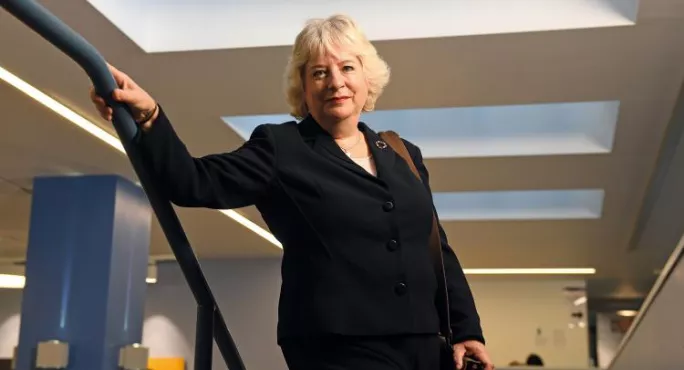The Chartered College of Teaching is considering developing a “chartered FE route” for teachers of post-16 education without a university degree, TES can reveal.
Currently, it is a requirement for founding members to hold a degree qualification or equivalent. However, chief executive Dame Alison Peacock told TES that there was the potential to devise a similarly “rigorous” chartered FE route, “with different entrance criteria”.
Dame Alison said: “It strikes me that some colleagues in FE will be eligible and excited to become chartered teachers because they will meet the criteria as they currently exist - and we are developing all of this. There will be others who will want to work with us to develop potentially a chartered FE route, which may well have different entrance criteria, but will necessarily still be as rigorous. It’s not about [the] lowest common denominator - this is about raising the bar across teaching, wherever we are.”
The college has recently invited college teachers to join as founder members in order to boost FE participation.
‘Schools need to hear more about FE’
Dame Alison also said the Chartered College of Teaching was an opportunity for schools “to hear more about what goes on in further education”. The organisation will work with “teachers across all sectors, from early years through to FE” in order to improve teaching. Although there is currently no FE representation, it claims to be comprised of “volunteers from across the education community and business”.
In an interview with TES (article free to subscribers), Dame Alison said: “The chartered college is essentially looking at working with teachers across all sectors, from early years through to FE. Clearly, within FE there are so many specialist routes in terms of vocational education. Schools need to hear more about some of the work that goes on in FE and, similarly, FE colleagues want to hear from schools.”
This is an edited article from the 17 February edition of TES. Subscribers can read the full article here. This week’s TES magazine is available in all good newsagents. To download the digital edition, Android users can click here and iOS users can click here
Want to keep up with the latest education news and opinion? Follow TES FE News on Twitter, like us on Facebook and follow us on LinkedIn




